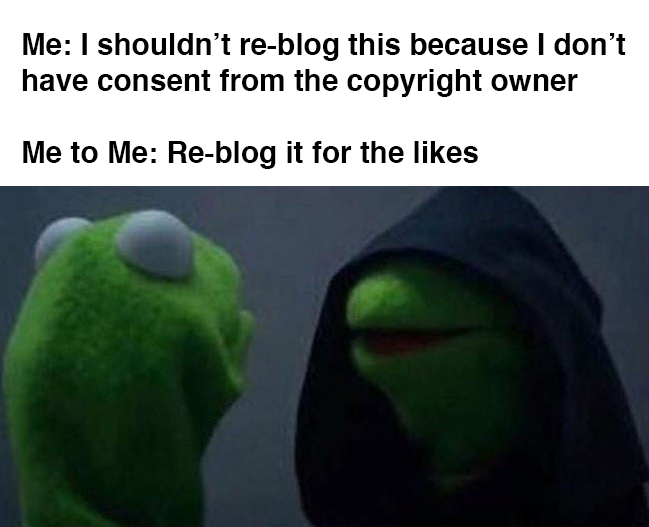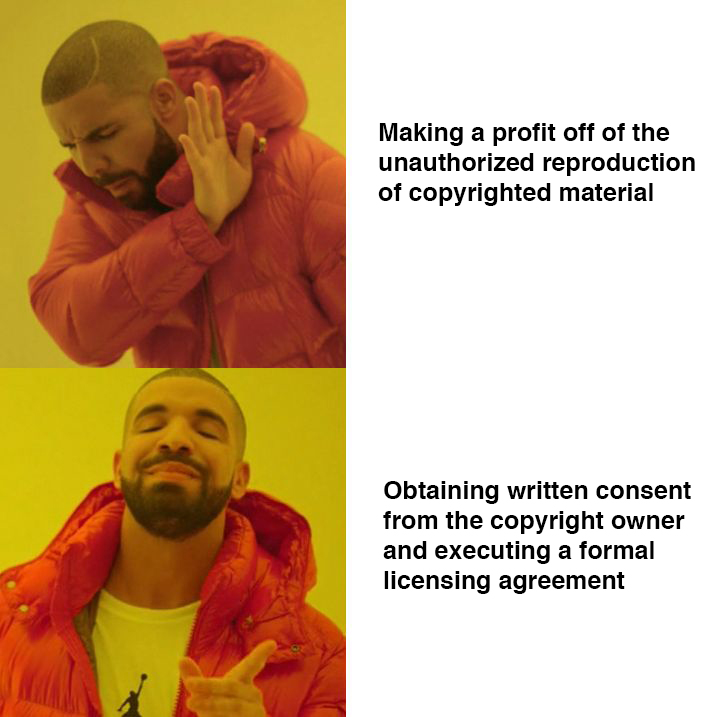Memes & Copyright Infringement: What Happens When a Tweet Goes Viral?
Think Before you Tweet:
If you're at all active on social media, you're likely to come across dozens of memes each day. According to Merriam-Webster, a meme is "an amusing or interesting item (such as a captioned picture or video) or genre of items that is spread widely online especially through social media." Some of the most notable memes of 2017 so far include Salt Bae (view the original Instagram post) and the Babadook as a queer icon (read about it here). While memes can be humorous and widely appealing, it's important to keep in mind that creating, retweeting, reblogging, and otherwise sharing memes on social media can constitute copyright infringement if you don't own the copyrights to the underlying images or videos.
What is a Copyright?
A copyright is a form of intellectual property that applies to original creative works fixed in tangible form, including paintings, photographs, literary works, videos, songs, and software. Under U.S. copyright law, a copyright owner has the exclusive legal right to copy, sell, reproduce, and display the work; as well as to create "derivative" works based on the original work. Copyright protection is automatic—your work is protected from the moment of its creation (e.g., when an author types a first draft, or when a photographer takes a photograph). This means you should think before you click on "reblog," "retweet," or "share," because doing so might constitute copyright infringement.
Situations in Which You Probably Won't Get Sued:
Of course, not every reblog or repost of viral content constitutes copyright infringement. In fact, you may be perfectly safe—or at least at a lower risk of being sued—in the following situations:
The underlying images or videos are in the public domain;
The copyright owner has given you express permission to share or create derivative works based on the copyrighted work;
Your use of the copyrighted work is "transformative";
You're using the copyrighted work solely for critique, commentary, or not-for-profit education; or
Your use of the copyrighted work constitutes a parody of the original work.
Situations in Which You Might Get Sued:
However, if you reblog, retweet, or otherwise share copyrighted material without the copyright owner's consent, and your actions don't fall under the category of fair use, then you may be at risk of being sued for copyright infringement. A recent example of unauthorized commercial use of a creative work that started off as a tweet gone viral came up during last month's Panorama Music Festival in New York City, when American singer and songwriter Frank Ocean wore a t-shirt that said, "Why be racist, sexist, homophobic, or transphobic when you could just be quiet?" It turns out that a company called Green Box Shop is selling t-shirts featuring this quote, which is based on a 2015 tweet from Twitter user @avogaydro. Although it's uncertain whether copyright protection lends itself to 140-character tweets, this kind of activity certainly opens copiers to potential liability for copyright infringement.
Fortunately, the owner Green Box Shop has been working with @avogaydro to give him proper credit and compensation.
The Takeaway:
Intellectual property laws are rarely black and white. U.S. copyright law contains a lot of grey areas when it comes to what constitutes copyright infringement vs. fair use, or whether a work even enjoys copyright protection in the first place. However, a good rule to remember is: just because a creative work is publicly available on the Internet doesn't mean you can copy, reblog, retweet, or otherwise share that work without the owner's permission. If you have any specific questions about copyright law, you should contact an experienced intellectual property attorney.
At Res Nova Law, our friendly and knowledgeable attorneys can advise you on the different types of intellectual property (including patents, trademarks, copyrights, and trade secrets), and how developing and protecting your intellectual property can help your business generate revenue and grow. As experienced litigators, we can also help you resolve intellectual property disputes and avoid potential litigation.


